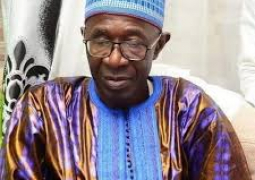
In a recent interview with The Point newspaper, Mr Bah said his policy will redefine the educational system to align with the development priorities of the country. Students, he says, will be equipped with practical and technical skills, particularly in strategic sectors as oil and gas, engineering, technology, healthcare, and industrial production.
"This transformation will prepare our youth to contribute meaningfully to the nation’s economic growth and industrial self-reliance, fostering innovation and skills necessary for future challenges," he said.
From secondary school, the curriculum will shift from a purely theoretical approach to one that emphasises practical skills and engineering fundamentals, under Mr Bah’s administration.
He will introduce practical education on oil exploration, extraction, processing, transportation, and refining, with a special emphasis on safety and environmental sustainability, the AFRO Movement leader promises.
In his administration students will engage in projects and labs related to emerging technologies such as Artificial Intelligence (AI), robotics, electronics, and mobile phone production. For Agriculture and Agro-industry, Mr Bah says practical modules will be designed on modern farming techniques, agro-industrial processing, and sustainability to boost productivity in the agricultural sector.
Agriculture and Agro-industry experts would assist in developing training programs to modernise farming techniques and promote agro-industrial growth, he emphasised.
"There will be Technical Labs and Workshops in every secondary and technical school,” he promised. “Students will have access to fully-equipped workshops and laboratories to apply engineering principles in real-world scenarios."
Apprenticeships and internships with partner industries such as oil and gas, manufacturing, agriculture, and technology will be established to provide students with hands-on training through internships and fieldwork, he said.
Students will however be assigned to solve the practical problems, such as designing and building prototypes of electronic appliances, mobile phones, and military equipment, thereby developing real-world solutions, he specified.
Read Other Articles In Headlines
Dove beauty cream bar soap, 100G, recalled
Sep 18, 2024, 10:29 AM




